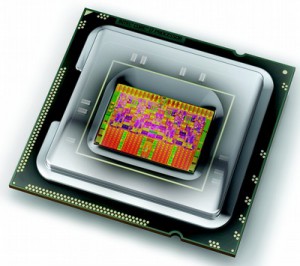
A new version of PHP (5.3.9) was available in FreeBSD today. Since it contained a lot of security fixes and enhancements, I decided to give it a try. After testing the new PHP in couple test servers, I think it is ready to upgrade the PHP on the production server. Oh well, I didn’t expect that I needed to spend my whole lunch break to trouble-shoot this problem. So here is what I did:
# cd /usr/ports/lang/php5
# make install
===> Vulnerability check disabled, database not found
===> License check disabled, port has not defined LICENSE
===> Found saved configuration for php5-5.3.9
===> Extracting for php5-5.3.9
=> SHA256 Checksum mismatch for php-5.3.9.tar.bz2.
=> SHA256 Checksum OK for suhosin-patch-5.3.4-0.9.10.patch.gz.
===> Refetch for 1 more times files: php-5.3.9.tar.bz2
===> Vulnerability check disabled, database not found
===> License check disabled, port has not defined LICENSE
===> Found saved configuration for php5-5.3.9
=> php-5.3.9.tar.bz2 doesn't seem to exist in /usr/ports/distfiles/.
=> Attempting to fetch from http://dk.php.net/distributions/.
fetch: http://dk.php.net/distributions/php-5.3.9.tar.bz2: Requested Range Not Satisfiable
=> Attempting to fetch from http://de.php.net/distributions/.
fetch: http://de.php.net/distributions/php-5.3.9.tar.bz2: Requested Range Not Satisfiable
=> Attempting to fetch from http://es.php.net/distributions/.
fetch: http://es.php.net/distributions/php-5.3.9.tar.bz2: Requested Range Not Satisfiable
=> Attempting to fetch from http://fi.php.net/distributions/.
fetch: http://fi.php.net/distributions/php-5.3.9.tar.bz2: Requested Range Not Satisfiable
=> Attempting to fetch from http://fr.php.net/distributions/.
===> Vulnerability check disabled, database not found
===> License check disabled, port has not defined LICENSE
===> Found saved configuration for php5-5.3.9
=> SHA256 Checksum mismatch for php-5.3.9.tar.bz2.
=> SHA256 Checksum OK for suhosin-patch-5.3.9-0.9.10.patch.gz
===> Giving up on fetching files: php-5.3.9.tar.bz2
Make sure the Makefile and distinfo file (/usr/ports/lang/php5/distinfo)
are up to date. If you are absolutely sure you want to override this
check, type "make NO_CHECKSUM=yes [other args]".
*** Error code 1
Stop in /usr/ports/lang/php5.
*** Error code 1
Stop in /usr/ports/lang/php5.
*** Error code 1
Stop in /usr/ports/lang/php5.
Initially, I thought it was a checksum error. So I decided to skip the checksum, i.e.,
#make install NO_CHECKSUM=yes
Unfortunately, it gave the same error. I think the problem might come from corrupted port files or port database. Instead of finding the source of the problem, I decided to rebuild the whole thing.
First, let’s remove the port database:
#sudo rm -Rf /var/db/portsnap/*
Next, we need to re-download all port files:
#sudo portsnap fetch extract
Some new ports may be released during the extraction, let’s make sure that the port tree is up to date:
#sudo portsnap fetch update
Now, we need to manually download the php source. Make sure that the file is stored in /usr/ports/distfiles/
#cd /usr/ports/distfiles/
#sudo wget http://fi.php.net/distributions/php-5.3.9.tar.bz2
Now, try to test whether the system can build php again. Notice that this will not install the PHP in your system.
cd /usr/ports/lang/php5
sudo make
If it gives no error, which means the PHP is ready to go. Now let’s clean up our work and make sure everything is ready.
sudo make clean
Notice that there is no way to upgrade the PHP from Make without uninstall it. Since it is a production server, I want to keep the website running. So I decide to let Portmaster to do all dirty works for me.
sudo portmaster -Da
Depending on your CPU, it may take 5 minutes to an hour to finish the update. Normally, the standard php package will work fine after the update. However, if it is not a standard package, such as PECL, you will need to do one more step. For example, here is the error messages right after I upgraded PHP:
#php -v
[eAccelerator] This build of "eAccelerator" was compiled for PHP version 5.3.8.
Rebuild it for your PHP version (5.3.9) or download precompiled binaries.
PHP Warning: PHP Startup: Unable to load dynamic library '/usr/local/lib/php/20090626/memcache.so' - /usr/local/lib/php/20090626/memcache.so: Undefined symbol "php_session_create_id" in Unknown on line 0
PHP Warning: PHP Startup: Unable to load dynamic library '/usr/local/lib/php/20090626/tokyo_tyrant.so' - /usr/local/lib/php/20090626/tokyo_tyrant.so: Undefined symbol "ps_globals" in Unknown on line 0
PHP 5.3.9 with Suhosin-Patch (cli) (built: Jan 12 2012 13:09:43)
Copyright (c) 1997-2012 The PHP Group
Zend Engine v2.3.0, Copyright (c) 1998-2012 Zend Technologies
[eAccelerator] This build of “eAccelerator” was compiled for PHP version 5.3.8.
Rebuild it for your PHP version (5.3.9) or download precompiled binaries.
To solve this problem, simple rebuild the package, i.e.,
cd /usr/ports/www/eaccelerator
sudo make deinstall install clean
PHP Warning: PHP Startup: Unable to load dynamic library ‘/usr/local/lib/php/20090626/memcache.so’ – /usr/local/lib/php/20090626/memcache.so: Undefined symbol “php_session_create_id” in Unknown on line 0
#cd /usr/ports/databases/pecl-memcache
#sudo make deinstall
#sudo make install clean
PHP Warning: PHP Startup: Unable to load dynamic library ‘/usr/local/lib/php/20090626/tokyo_tyrant.so’ – /usr/local/lib/php/20090626/tokyo_tyrant.so: Undefined symbol “ps_globals” in Unknown on line 0
#cd /usr/ports/pecl-tokyo_tyrant
#sudo make deinstall
#sudo make install clean
After the re-installation is completed, make sure that PHP gives no complain:
#php -v
PHP 5.3.9 with Suhosin-Patch (cli) (built: Jan 12 2012 13:09:43)
Copyright (c) 1997-2012 The PHP Group
Zend Engine v2.3.0, Copyright (c) 1998-2012 Zend Technologies
That’s it! Have fun.
Our sponsors:







